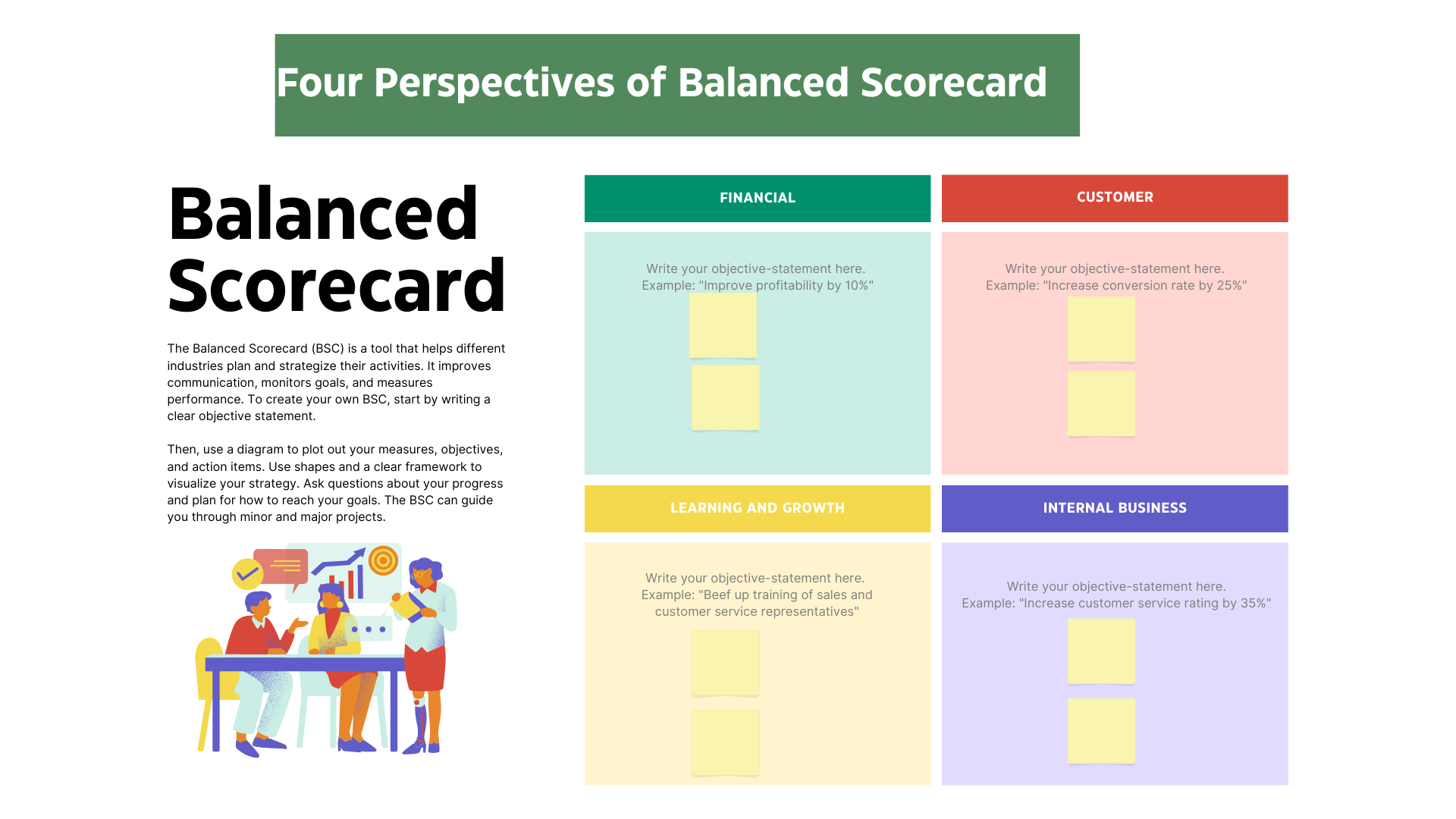In today's fast-paced business environment, organizations are constantly seeking effective ways to align their operations with their strategic goals. The Balanced Scorecard (BSC) framework has emerged as a powerful tool for strategic management, enabling organizations to measure performance beyond traditional financial metrics. This article explores the role of Balanced Scorecard software in enhancing strategic management processes.

Understanding the Balanced Scorecard Framework
The Balanced Scorecard, developed by Robert S. Kaplan and David P. Norton in the early 1990s, is a performance management framework that translates an organization’s vision and strategy into actionable objectives. It encompasses four key perspectives:
- Financial Perspective: Focuses on financial performance and the impact of strategic initiatives on the bottom line.
- Customer Perspective: Assesses customer satisfaction and engagement, vital for driving revenue and growth.
- Internal Processes Perspective: Evaluates the efficiency of internal operations and processes critical to delivering value to customers.
- Learning and Growth Perspective: Highlights the importance of employee development, organizational culture, and innovation.
This holistic approach allows organizations to balance short-term financial goals with long-term strategic objectives.
The Role of Balanced Scorecard Software
As organizations adopt the Balanced Scorecard framework, the complexity of managing multiple performance indicators increases. This is where Balanced Scorecard software comes into play. These specialized tools facilitate the implementation, monitoring, and reporting of BSC metrics, providing a centralized platform for performance management. Key benefits include:
- Streamlined Data Management: BSC software consolidates data from various sources, making it easier for organizations to gather, analyze, and report on performance metrics. This reduces the time spent on manual data collection and enhances accuracy.
- Real-Time Performance Monitoring: With real-time dashboards and reporting capabilities, organizations can track their performance against strategic objectives continuously. This enables timely decision-making and allows for quick adjustments to strategies as needed.
- Enhanced Collaboration: Balanced Scorecard software promotes collaboration across departments by providing a unified view of performance metrics. Teams can align their efforts toward common objectives, fostering a culture of accountability and transparency.
- Customizable Dashboards: Most BSC software solutions offer customizable dashboards that allow organizations to tailor their views based on specific needs. This flexibility ensures that stakeholders can access the information most relevant to their roles, whether they are executives, managers, or front-line employees.
- Integration with Other Systems: Many BSC software solutions can integrate with existing enterprise systems, such as ERP and CRM platforms. This integration ensures that data flows seamlessly between systems, providing a comprehensive view of organizational performance.
Key Features of Balanced Scorecard Software
When selecting a Balanced Scorecard software solution, organizations should consider several key features:
- Goal Setting and Alignment: The software should facilitate the setting of clear strategic goals and objectives, ensuring alignment across the organization.
- Performance Tracking and Reporting: Look for software that offers robust tracking and reporting capabilities, including real-time dashboards, visualizations, and customizable reports.
- Collaboration Tools: Features that promote collaboration among team members and departments can enhance communication and alignment.
- Analytics and Insights: Advanced analytics capabilities allow organizations to derive actionable insights from their performance data, enabling informed decision-making.
- User-Friendly Interface: A user-friendly interface is crucial for ensuring that employees at all levels can effectively utilize the software without extensive training.
Conclusion
Balanced Scorecard Software plays a vital role in enhancing strategic management by providing organizations with the tools needed to measure and monitor performance effectively. By adopting a BSC framework and utilizing specialized software, organizations can achieve better alignment between their operations and strategic goals, ultimately driving long-term success. As the business landscape continues to evolve, leveraging technology to support strategic management will be crucial for organizations looking to stay competitive and achieve their objectives.